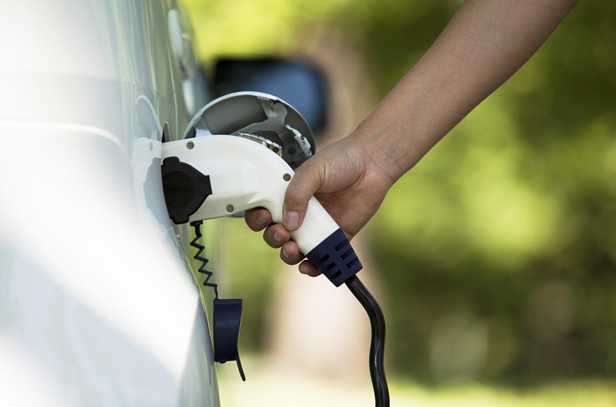Buying an electric car is a great way to trim your carbon footprint down to size. A growing number of people are reducing their emissions by going electric, which also means that more charging points are popping up on our streets, petrol stations and in other locations. But what about charging your electric car at home?
Before you purchase your new car, it’s very important to do your research and put plans in place for charging it at home. In this guide, you’ll find out what equipment you need and what you’ll need to do to charge your new electric vehicle from your very own driveway.
Can you charge an electric car at home?
As long as your house has an electricity connection, you should have no problems charging your electric vehicle. You can park it on your driveway or in the garage and connect the car up to a home charging point – which charges much faster and is far safer to use than a standard 3-pin plug.

How to charge an electric car at home
The first thing to do before you buy or lease an electric car is to work out how you’ll charge it. It’s recommended to use a proper home charging point. Many energy providers will have full kits you can install for home electric vehicle (EV) charging. These charging points are compact and fast, so your car will always be fully charged up whenever you need to use it. Some can even be controlled and monitored by apps.
Charging points also tend to be weatherproof and designed for prolonged use, which standard 3-pin plugs aren’t (although such a plug can be used as a short-term measure or last resort).
When you get a home charging point, with an energy provider for example, installation will sometimes be included in the cost. It’s always recommended to use a properly qualified installer, who will safely and expertly connect your new charging point to the mains supply and make sure it’s 100% safe to use. Crucially, your installer will check the wiring in your home to make sure it can handle the extra load.
It’s important to choose the right location for your EV charging point, ensuring easy access when it’s time to charge up. For example, at the front of your property for access from the driveway, or in the garage. You’ll need to choose the right type of connector for your car too – Type 1 or Type 2. This should be made clear in your vehicle handbook, but you can always ask for advice from the car leasing provider or dealer.
There are of course costs involved with getting a home charging point fitted, but you can reduce this expense with the help of a government grant. There is currently an Office for Low Emission Vehicles (OLEV) grant which can pay for 75% of the cost of installing a home charging point. You’ll need to use an OLEV approved supplier and the grant is capped at £500 for one supply point.
Once your charging point is fitted and ready to use, all you have to do is hop out of the car and plug it in. Your car will charge up until the battery is at full capacity, ready for your next drive.
How do you charge an electric car at home?
In many ways, charging up your electric vehicle is very similar to charging a mobile phone. You’ll simply need to attach the connector from the home charging point to the appropriate plugin point on the car, and wait for the battery to recharge. Many people prefer to leave their vehicle charging overnight, although you may not necessarily need to charge up your car every day.
It can take as little as 30 minutes or as long as 12 hours to charge an electric car, depending on the speed of the charging point or the size of the battery. With this in mind, it can be a good idea to plug in your vehicle as soon as you get home – or whenever it’s not in use – so that it’s always got enough power should you need to make an unexpected journey.
Can you charge an electric car with solar panels?
The good news for those who have solar panels at home is that it is possible to charge an electric car using the energy these photovoltaic (PV) panels generate. You will need to have a little extra equipment however. For example, you’ll need a PV inverter unit to convert the solar energy into a DC current which can be fed through your home EV charging point.
It can be expensive for the most advanced systems, especially if you don’t already have solar panels but intend to buy them. However, it can be considered a sound investment for a greener, more sustainable lifestyle for your family in the future.
